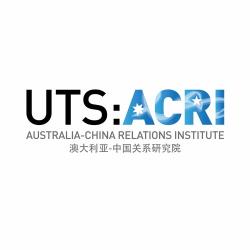Australia-China artificial intelligence research collaboration
Guest: Michael Zhou, Project and Research Officer, Australia-China Relations Institute, University of Technology Sydney
Host: Elena Collinson, Senior Project and Research Officer, Australia-China Relations Institute, University of Technology Sydney
Artificial intelligence (AI) has in in recent years received widespread attention for its potential to transform vast swathes of the global economy and global society. While there might be many opportunities presented by the many new frontiers of AI and the swift advances in the design and harnessing of its technologies, there is also great potential for such technologies to be abused and applied to undesirable ends.
The People’s Republic of China’s (PRC) position among global leaders in the development and uptake of such technologies means that research collaboration fittingly receives critical examination. What influences trends in AI development in Australia and the PRC? And how can Australia respond to the risks and benefits of collaborating with the PRC in AI research? Michael Zhou joins Elena Collinson to discuss these questions and more.
PRC-affiliated scientists are now Australia’s leading research partners in AI by both quantity and quality metrics, with variations at the institutional level and a small proportion of collaboration with PRC defence or security institutions.
Two factors influencing this collaboration are the general incentives for scientists to collaborate (such as pooling knowledge to solve research questions of mutual interest) and the increasing opportunity to do so as the PRC has increased its AI research output.
While this has contributed to the PRC being seen as a global leader in AI, realising its ambition to become the ‘primary’ AI innovation centre is contingent on factors such as retention of AI talent, hardware gaps and progress in fundamental theories – not to mention that the definition of ‘primary’ itself is unclear.
At an aggregate level, AI’s potential economic benefit for Australia is expected to be in generating productivity growth. At a more detailed level, the Australian government has identified key sectors where Australia has the potential to derive significant economic gains from AI technologies. University collaboration with PRC researchers generally focuses on basic science, and hence would not necessarily contribute direct economic benefits. Rather, research findings from such collaboration supports the development of specific applications that more directly benefit the Australian economy.
AI's general-purpose nature and the fact that university research focuses on basic science mean it is difficult to apply broad restrictions without risking impeding development of beneficial end-uses. New guidelines introduced by the Australian government’s University Foreign Interference Taskforce can bolster existing research ethics oversight mechanisms and reduce the risk of supporting undesirable end-uses.
While the US’ AI ecosystem is different to Australia’s, the conversation around balancing the opportunities and risks of collaboration with the PRC in AI research parallels Australia’s. In the Indo-Pacific region, there are varying levels of AI research collaboration with the PRC. Nonetheless, as the PRC continues to advance in implementation of its AI strategy it is likely that discussion around opportunities and risks will also intensify.
This podcast interview is based on the findings of a working paper, Cross-border neural networks: Australia-China collaboration in artificial intelligence research.
Summary written by Michael Zhou, Project and Research Officer, Australia-China Relations Institute, University of Technology Sydney.
Technical production by Amy Ma, Communications Officer, Australia-China Relations Institute, University of Technology Sydney.
Theme music by Sam J Mitchell.


